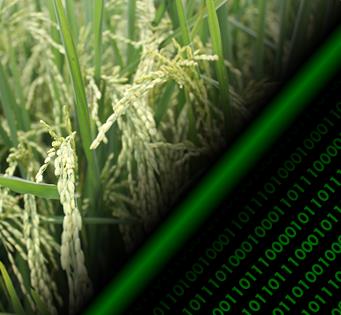Surfing parameter hyperspaces under climate change scenarios to design future rice ideotypes.
 |
2017 - Global Change Biology, 23, 4651-4662. |
 |
Paleari, L., Movedi, E., Cappelli, G., Wilson, L.T., Confalonieri, R. |
Abstract:
Growing food crops to meet global demand and the search for more sustainable cropping systems are increasing the need for new cultivars in key production areas. This study presents the identification of rice traits putatively producing the largest yield benefits in five areas that markedly differ in terms of environmental conditions in the Philippines, India, China, Japan and Italy. The ecophysiological model WARM and sensitivity analysis techniques were used to evaluate phenotypic traits involved with light interception, photosynthetic efficiency, tolerance to abiotic stressors, resistance to fungal pathogens and grain quality. The analysis involved only model parameters that have a close relationship with phenotypic traits breeders are working on, to increase the in vivo feasibility of selected ideotypes. Current climate and future projections were considered, in the light of the resources required by breeding programs and of the role of weather variables in the identification of promising traits. Results suggest that breeding for traits involved with disease resistance, and tolerance to cold- and heat-induced spikelet sterility could provide benefits similar to those obtained from the improvement of traits involved with canopy structure and photosynthetic efficiency. In contrast, potential benefits deriving from improved grain quality traits are restricted by weather variability and markedly affected by G 9 E interactions. For this reason, district-specific ideotypes were identified using a new index accounting for both their productivity and feasibility.
 |
Keywords: Blast, canopy structure, chalkiness, head rice, photosynthetic efficiency, sensitivity analysis, spikelet sterility, WARM |
 |
DOI: 10.1111/gcb.13682 |
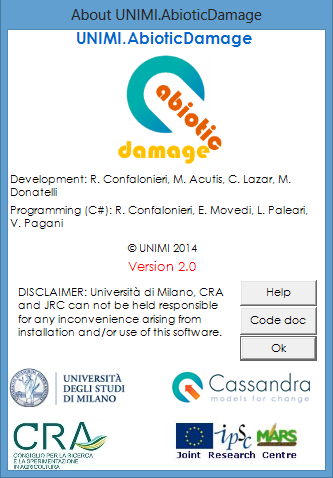 |
AbioticDamage A software component for the impact of abiotic damages on crop productions |
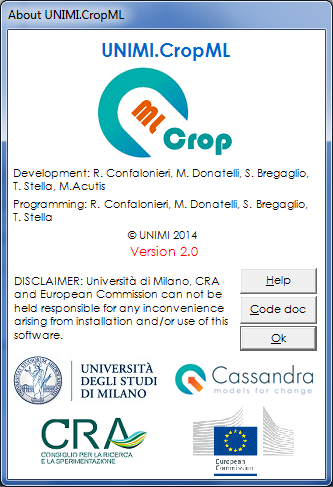 |
CropML CropML is a framework-independent component implementing a variety of approaches for crop growth |
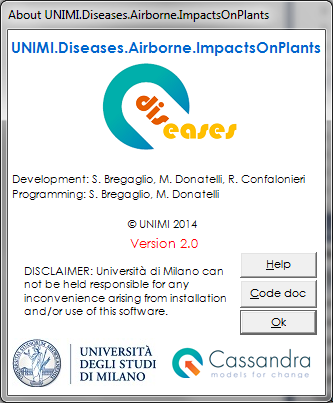 |
Diseases A software component to simulate plant-pathogen interactions |
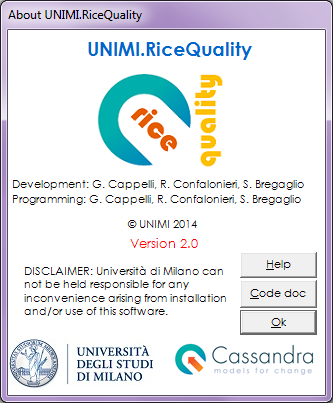 |
RiceQuality A software library to simulate different rice quality variables |
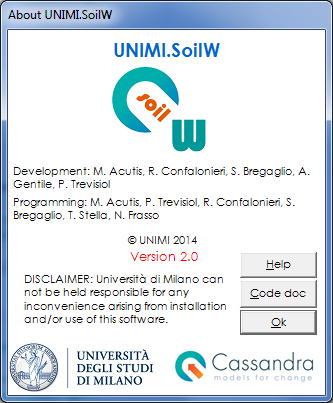 |
SoilW A software library implementing different approaches for soil hydrology simulation |
- Comparison of three calibration methods for modeling rice phenology
- A simple pipeline for the assessment of legacy soil datasets: An example and test with soil organic carbon from a highly variable area.
- A high-resolution, integrated system for rice yield forecasting at district level.
- Downscaling rice yield simulation at sub-field scale using remotely sensed LAI data.
- Analysis and modelling of processes involved with salt tolerance and rice.
- Estimating crop nutritional status using smart apps to support nitrogen fertilization. A case study on paddy rice.
- Development of generic crop models for simulation of multi-species plant communities in mown grasslands.
- Quantifying uncertainty due to stochastic weather generators in climate change impact studies
- Predicting rice blast disease: machine learning versus process-based models
- Boundaries and perspectives from a multi-model study on rice grain quality in Northern Italy.






